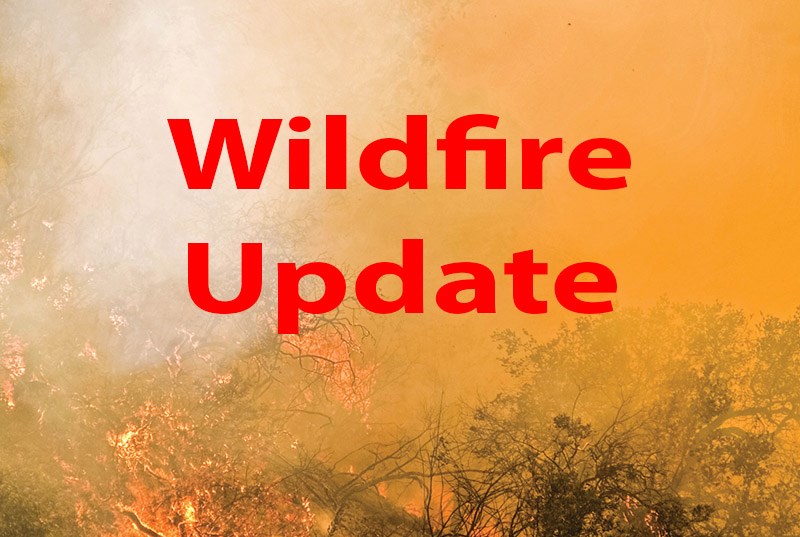REGINA — The Saskatchewan public Safety Agency lifted the provincial fire ban Monday, as approaching weather bringing cooler temperatures and rain is expected to aid the ongoing dry conditions.
SPSA president Steve Roberts provided an update on the current state of wildfires in Saskatchewan to the media on July 19, the first since Friday.
“Over the weekend, we received scattered precipitation and cooler temperatures over the northern half of the province,” said Roberts. “Because of that activity, and because we’re projecting cooler temperatures will prevail, that has prompted us to lift the fire ban.”
Some municipalities may choose to maintain their fire bans according to local conditions, he continued, especially those in the far southern part of the province.
Currently, 161 fires are considered active in the province, an increase of 24 fires over the weekend. He attributed the increase once again to lightning brought in by weekend storm systems.
“Our fire numbers are actually up, but the fire behaviors have been diminished because of the favourable conditions,” said Roberts.
Saskatchewan has now recorded 424 fires this year, almost double the five-year average of 214.
Roberts said that this year has seen more active wildfires than the province experienced in 2015, when wildfires raged across the northern region, and is a record-breaking number in the last decade.
“Even though this is a large number, we are fortunate that many of these fires aren’t as large as we saw in 2015, so that has changed our strategies,” said Roberts.
Since Friday, Roberts said that crews have been able to contain both the White fire near Candle Lake and the Whelan Bay recreational site and the Fork fire southwest of Beauval.
Eleven communities and highways remain threatened, which the SPSA considers to be high priority for response. This includes the wildfires located near Dillon and surrounding communities, Stanley Mission, Grandmother’s Bay, and several highways.
Joan Hrycyk, director of emergency and crisis support, said that there were no further communities evacuated by the SPSA this weekend.
More than 100 residents of Grandmother’s Bay and area voluntarily evacuated on the decision of local government and have yet to return.
The Canadian Red Cross is also supporting a reported 300 evacuees from Shoal Lake First Nation, currently housed in Regina.
Eighty-three evacuees from the Dillon area are currently housed in North Battleford. Another 10 individuals from Whelan’s Bay are being housed in Prince Albert, and two in Nipawin.
“That order has ended, and they are being sent home today,” said Hrycyk.
Roberts said travel to the north is still not recommended “due to smoke, potential access restrictions, and to ensure our firefighting efforts are not hampered.”
Most of the province was under an air quality advisory throughout the weekend, but Roberts said the wind is expected to change to the west and conditions will improve.
The SPSA has hired an additional 150 local firefighters to aid in containment efforts, as well as sourcing provincial fire departments and volunteer firefighters to help protect communities.
“The break in the weather will give us opportunities to resource a number of these fires and get them contained, and so we’ll take every advantage we can to do that while the weather cooperates,” said Roberts.



